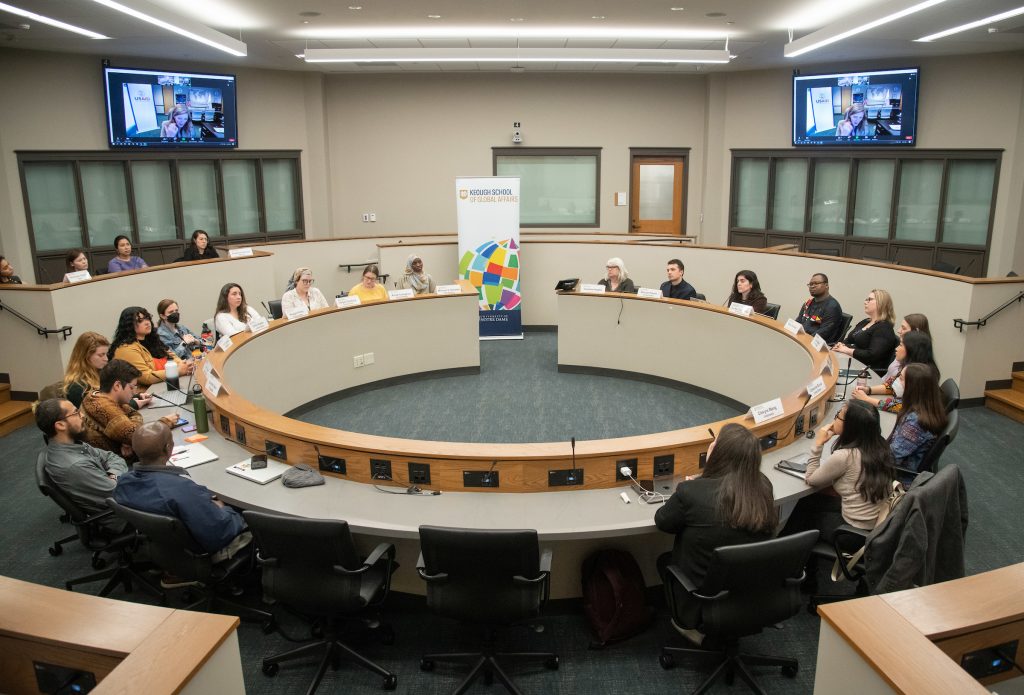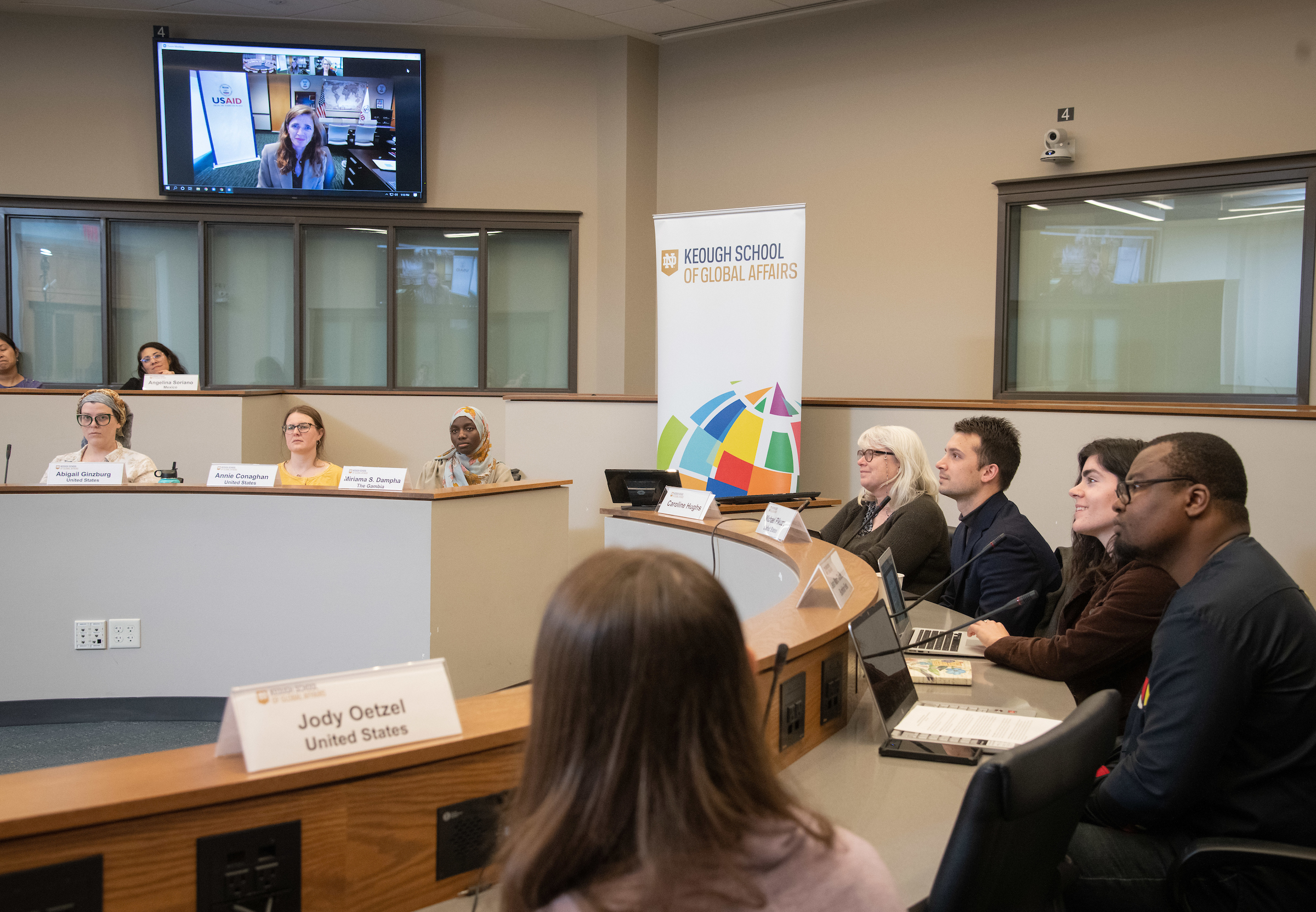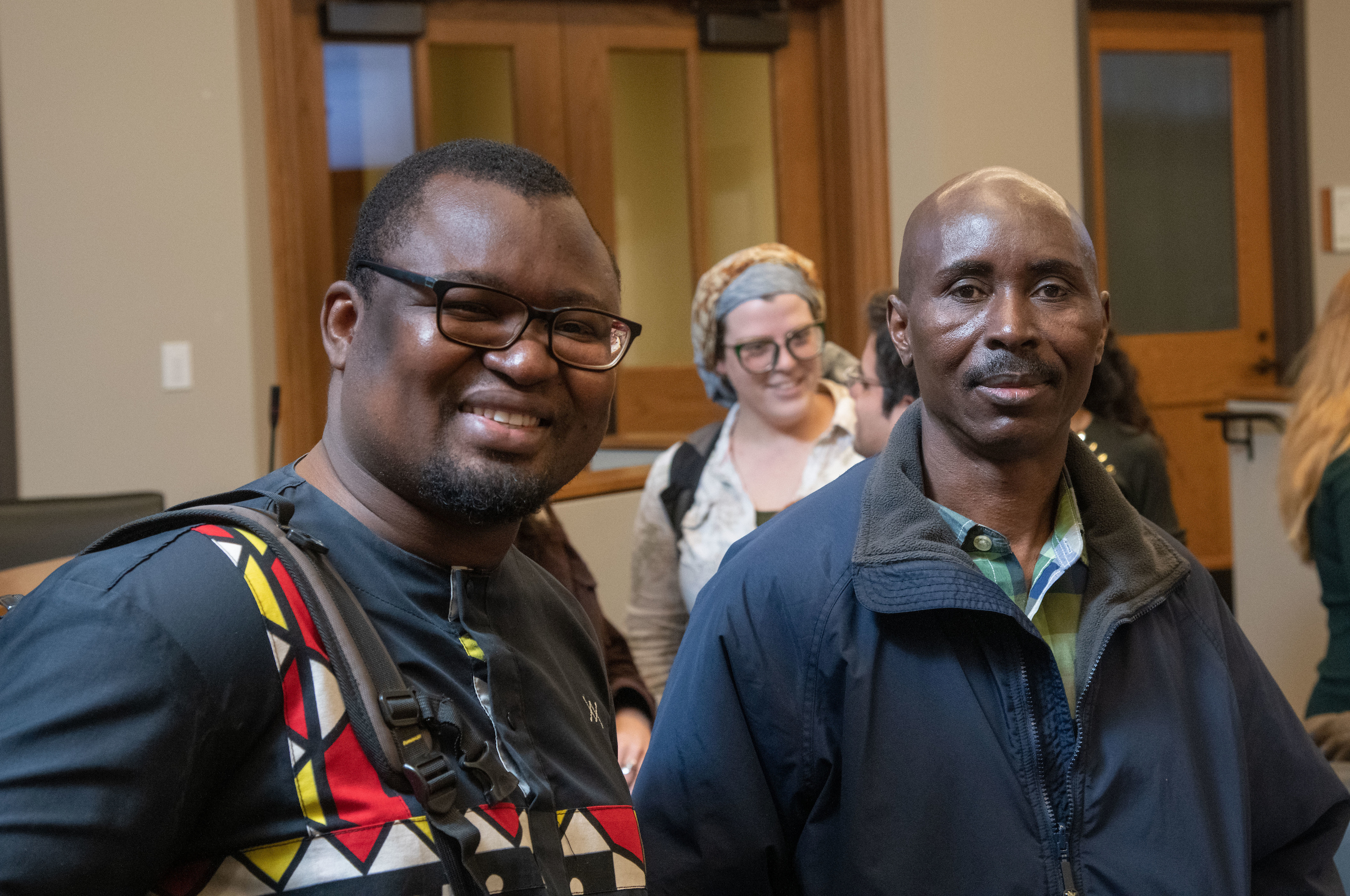Samantha Power, the Administrator of USAID, spoke with master of global affairs students during a recent virtual class visit on a range of topics related to global development.
Before her current role, Power served as the 28th US Permanent Representative to the United Nations and on the National Security Council staff as Special Assistant to the President and Senior Director for Multilateral Affairs and Human Rights. An Irish immigrant, she began her career as a war correspondent in Bosnia and won the 2003 Pulitzer Prize for Nonfiction for her work “A Problem from Hell”: America and the Age of Genocide.
In her role as Administrator of USAID, Power is focused on helping the United States respond to four interconnected challenges: the COVID-19 pandemic and the development gains it has threatened; climate change; conflict and humanitarian crises; and democratic backsliding. She has also committed to help USAID continue and grow its leadership in such areas as food security, education, women’s empowerment, and global health.
Power shared a variety of policy insights in her conversation with students. In response to a question about how best to prevent democratic backsliding, she stressed the importance of dialogue and partnerships with civil society and other local actors to find solutions.
“It is crucial,” she said, “that we incorporate insights from the countries we serve into new innovations.” Power also discussed strategies for making aid distribution more equitable and addressing global fragility.
Master of global affairs students Rayangnewende Jean Marc Tiendrebeogo (left) and Mongalla Ngbabare (right) are pictured. Tiendrebeogo, who is from Burkina Faso, asked Power about the ways in which the United States could help address security and fragility concerns in West Africa. Power explained the importance of USAID’s Bureau for Conflict Prevention and Stabilization (CPS). The CPS Bureau works with USAID Missions, US Embassies, and a range of local actors to promote peace and stability through programs, funding, and technical services focusing on social, communal, and political aspects of crises and political transition.
Power’s visit was the culmination of a semester-long policy class, “DC Immersion: Policy, Impact and Networking.” Students began the semester by researching specific policy issues of their choosing and designing outreach strategies in preparation for a spring break trip to Washington, DC.
During that trip, students put their policy analysis and advocacy skills into practice in meetings with policy experts in government agencies, non-governmental organizations, think tanks, and Capitol Hill offices.
The class was taught by Maura Policelli, executive director of the Keough School Washington Office and associate professor of the practice in the Keough School of Global Affairs.







